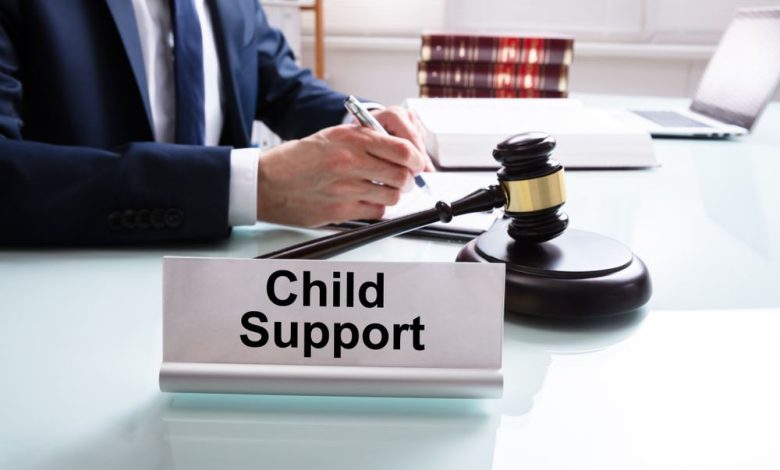
When parents divorce, they must carefully examine how they will provide financial assistance for their children. Popular options include child support, often known as child maintenance. Sebastian Church Mediation can help you today.
Regarding Child Support
If you separate from your spouse and have children who do not reside with you, you may be required to pay child support to the person who provides daily care for the children.
The law assigns parents one of two designations: parent with care (PWC) or non-resident parent (NRP). The word chosen depending on the child’s day-to-day living situation.
Any disagreements over the child’s residence must be handled by a family court.
Even though the court has awarded dual residence, child support guidelines require one parent to be the PWC and the other to be the NRP.
Child support is paid by the NRP to the PWC to satisfy the financial bakirkoy escort requirements of the child.
The payment is not required to be made to a parent. It may also be paid to a grandparent or guardian residing with the kid.
Benefits of child support
What are your fatherly rights?
A woman bears parental responsibility for her kid from the moment of birth, but males do not.
You have rights as the child’s father if:
- You are married to the mother of the kid
- The kid was born on or after 1 December 2003, and you are listed as the child’s father on the birth certificate.
- The child’s birth certificate was first issued without a father’s name but was afterwards amended to include yours.
- You’ve signed a Parental Responsibility Agreement
- A Family Court magistrate or justice of the peace has awarded you parental responsibility or an order of residency.
If you are presently going through a divorce with your child’s mother, here is further information on men’s divorce rights.
Contact BRAND now for more information about dads’ rights in the United Kingdom. https://sebastianchurch.co.uk/locations/
Financial Responsibilities
You are obligated financially to provide for your kid. Even though your connection with the child’s mother has ended, you are still expected by law to contribute to the child’s welfare and upbringing.
If you are responsible for raising a kid, you must guarantee that you can:
- Provide your youngster with a home
- Maintain and protect your kid
You are required to financially support your kid if you reside in the United Kingdom and your child is eligible for assistance.
Even if you have no contact with the kid, you are legally obligated to pay child support.
However, if you and your ex-spouse shared equal responsibility for your kid, you may not be legally obligated to pay child support.
Privately Arranging Child Support
You and your ex-spouse may independently negotiate child support. This is known as a “family arrangement.” It is a method of organizing child support that does not involve third parties.
If you and your ex-partner reach an agreement, it is imperative that you get a copy of the signed contract.
This ensures that all parties are aware of their respective positions. And that you have proof of your attempts to arrange payment.
If no agreement can be reached or if you choose to employ a formal agency, the Child Support Agency may manage child support.
Applying for Child Support
Before applying for the Child Maintenance Service, you must consult with Child Maintenance Options (CMS).
You often have the option of paying child support directly to the custodial parent. The term for this is Direct Pay.
You may also choose to utilize the CMS Collect & Pay programme, which involves paying child support directly to the CMS.
They will then forward the funds to the parent responsible for the child’s day-to-day care. Notably, there is a fee associated with this service.
Determining Child Support
The Child Support Agency (CSA) examines the information provided by both parents to assess whether child support is needed.
Upon determining that child support is owed, the CSA will compute the amount that must be paid.
The CSA may also gather information from other sources and consider it when reaching a determination.
This may include the present employer of the non-resident parent or HM Revenue and Customs.
Child support is determined by applying a set rate to the income of the non-resident parent.
The four rates are as follows:
- Basic rate – Income is at least £200 per week
- Reduced rate – Weekly income is more than £100 but less than £200
- Flat rate – Weekly income between £5 and £100
- Zero rate – Weekly income is less than £5
The figure is then revised to take the elements below into consideration:
- How many other children dwell with the NRP?
- If the NRP or their partner are presently seeking child benefit
- How many children the NRP pays child support for
- How often the youngster sleeps at the NRP’s home.
What Happens If Child Support Is Not Paid?
Not paying child support is likely to have a knock-on impact on the wellbeing of your kid.
If you fail to pay the child support ordered by the CMS, it may take measures to collect, such as:
- Your benefits, salary, or bank account might be debited.
- In England and Wales, bailiffs may be authorized to seize and sell items with value equal to the debt owing.
- You might lose your driving privileges
Need Guidance?
Utilize our Child Support Calculator to see how much you or your ex-spouse should be paying.
Child support ensures that a child receives regular financial support from parent who is otherwise economically unable to support them.
If you are involved in a child custody dispute with your ex-spouse, Sebastian Church Mediation can provide you with a variety of valuable information and guidance to assist you through this trying period.